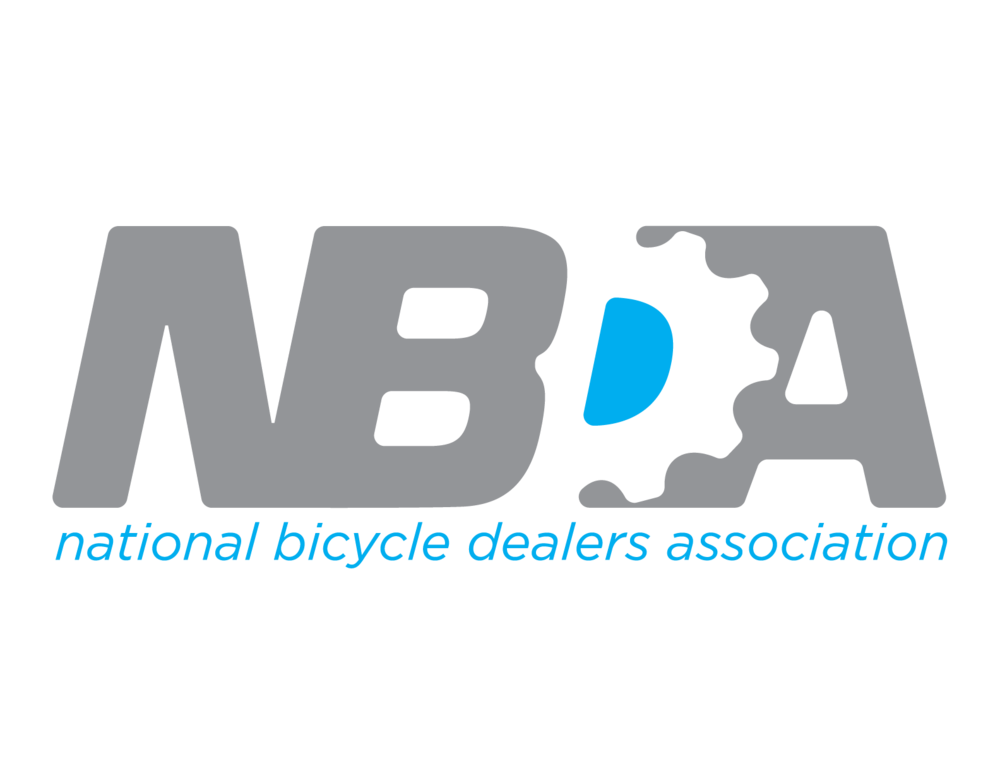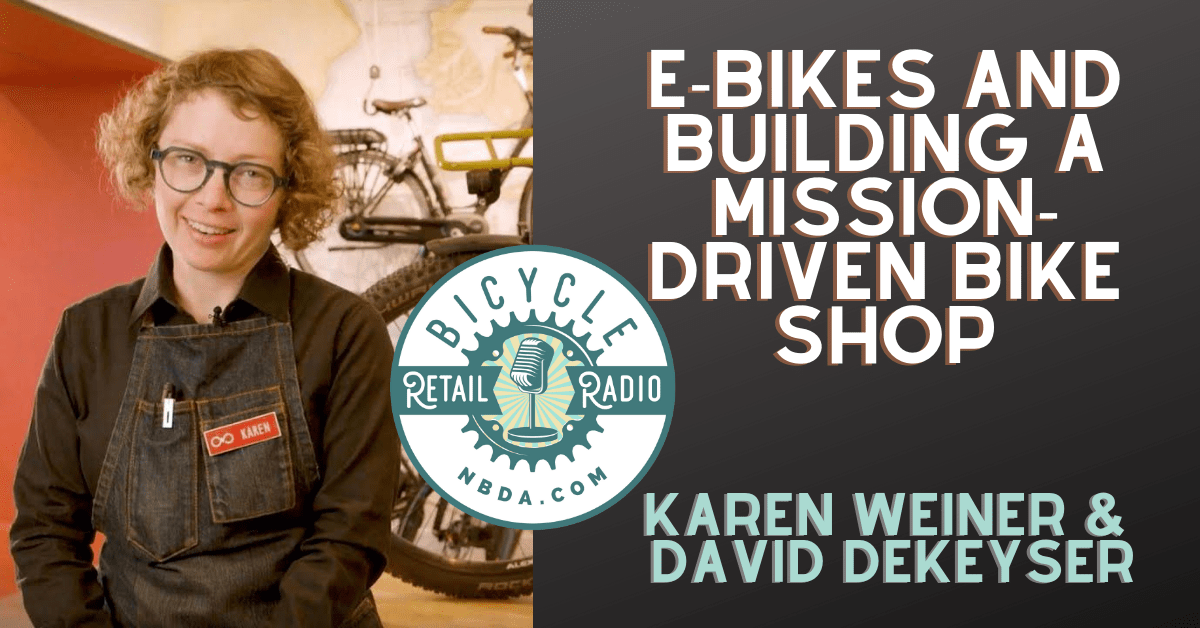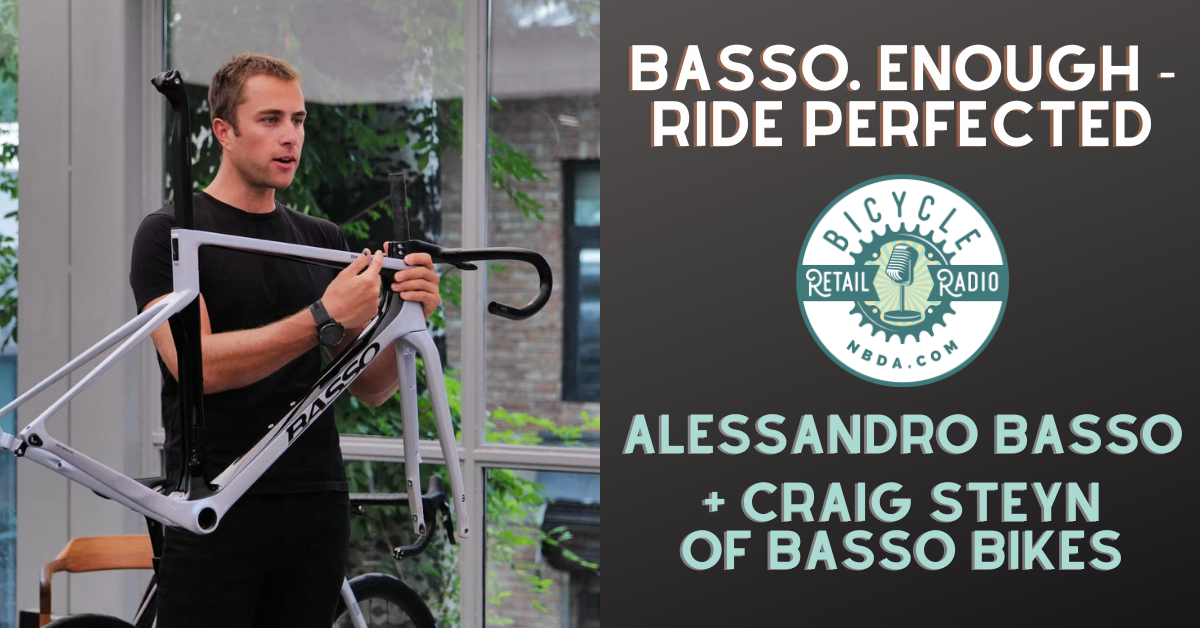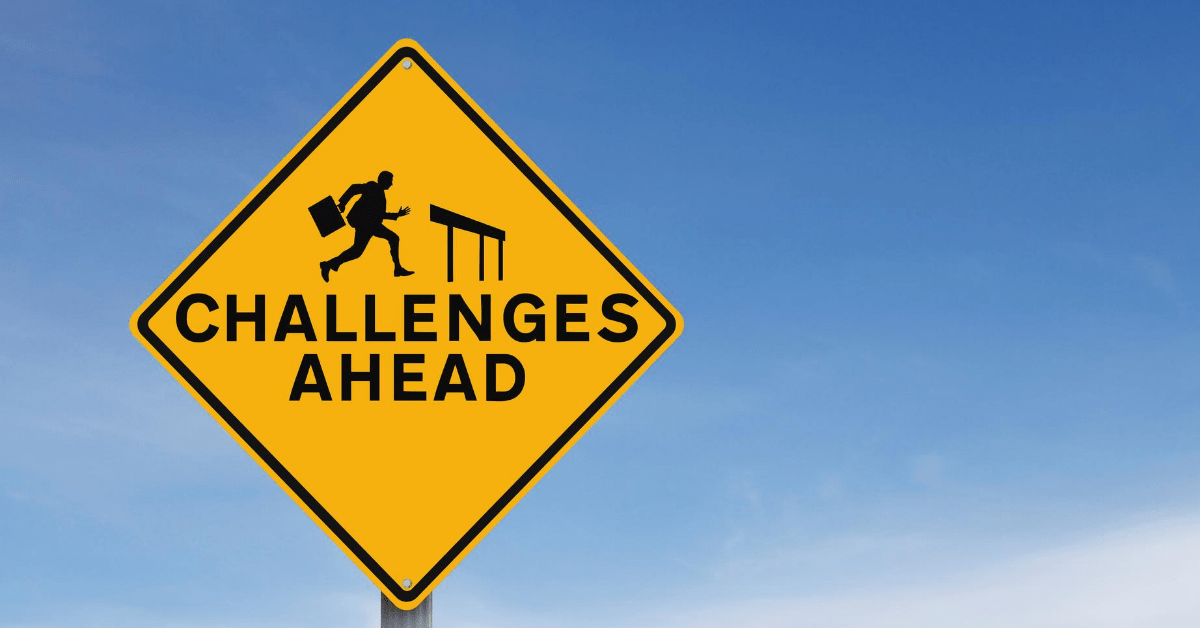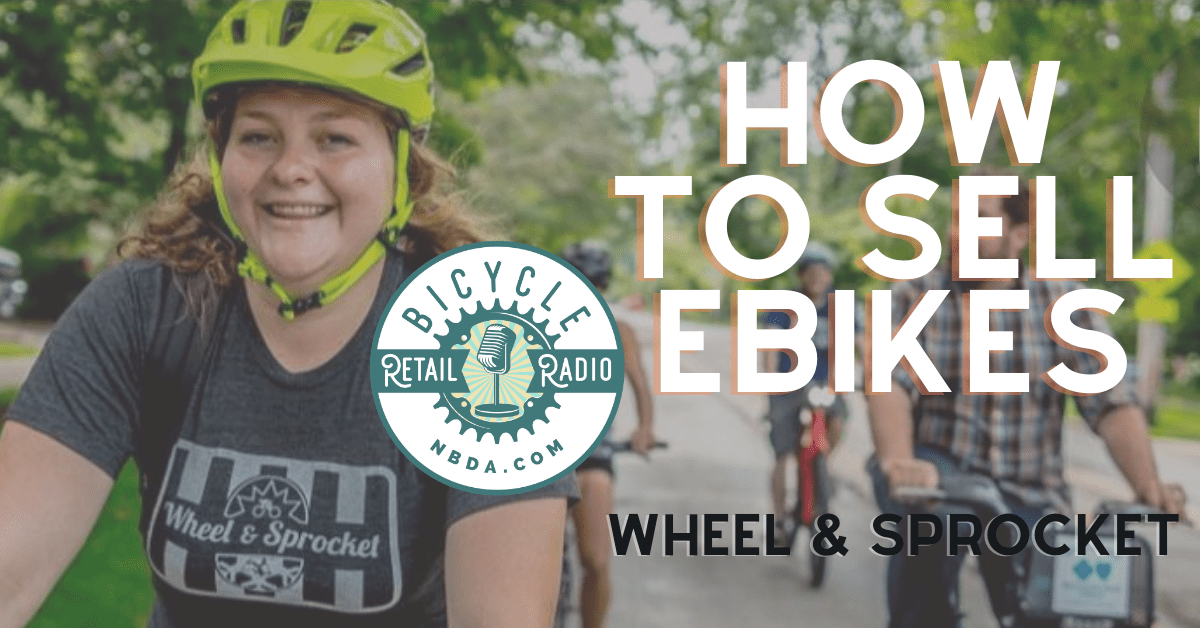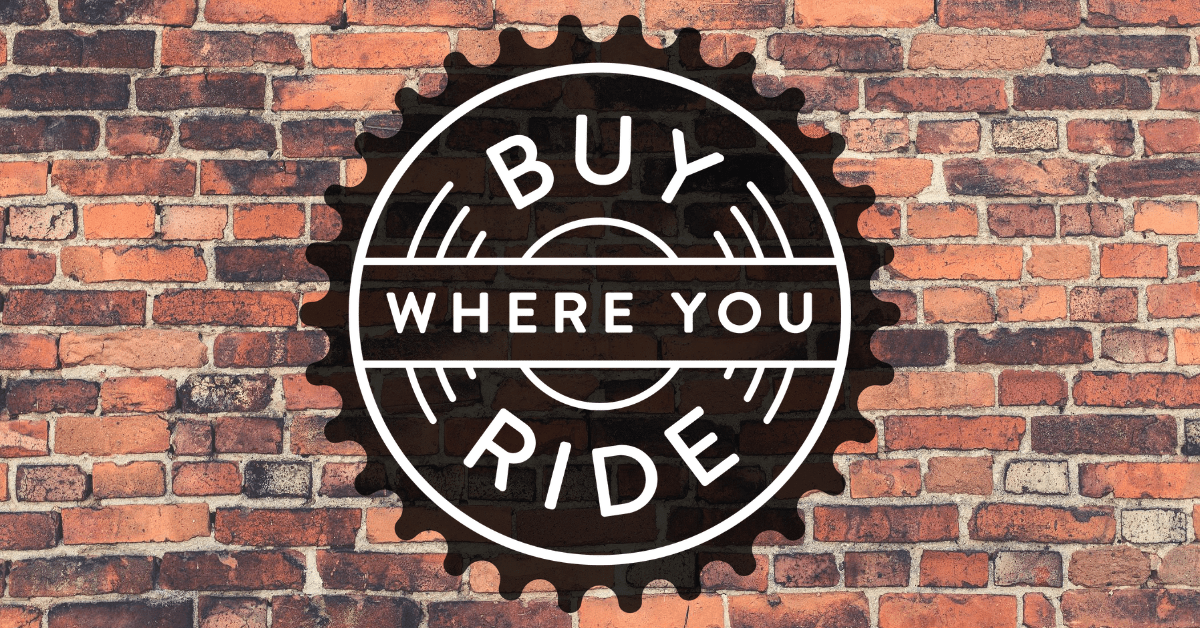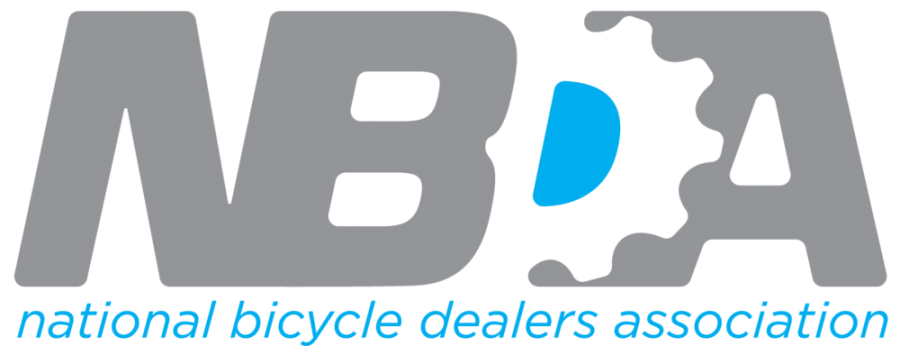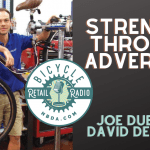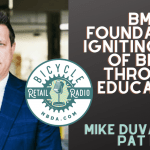E-Bikes and Building a Mission-Driven Bike Shop
E-Bikes and Building a Mission-Driven Bike Shop: Â Karen Weiner and Brett Thurber opened a bike shop ten years ago in California’s Bay Area with four e-bikes on consignment, and no previous bike shop experience an asset that enabled them to bring fresh eyes and a creative approach to creating a mission-driven business model. They began by operating out of their apartment and delivering bikes by the trailer, and today, The New Wheel has two locations, an offsite service center, and 28 employees.
In this episode of Bicycle Retailer Radio, Karen Weiner talks about the challenges and benefits of being an e-bike only retailer and how they have built their business around the unique needs of the e-bike consumer. Karen also talks candidly about the tension between dealer and bike manufacturer needs and goals, and how The New Wheel leverages their service department to enhance the rider experience and build customer loyalty.
Please enjoy listening to E-Bikes and Building a Mission-Driven Bike Shop.
Support the show (https://nbda.com/articles/donation-form-pg511.htm#!form/Donate)
The New Wheel’s MISSION
Our mission is not only to change how we get around but to bring good things and fresh ideas into the lives of people in our community and California as a whole.
We uphold our commitment to our customers through careful selection of technology, top-notch service, and an unwavering optimism for the future of transportation and electric bikes in the Bay Area.
Come visit our electric bike shops in San Francisco and Marin County.
Episode Transcript
Episode 20 – Bicycle Retail Radio
Tue, 8/18 10:41AM • 38:10
SUMMARY KEYWORDS
bike, bike shops, bicycle, electric bikes, people, ebike, customers, margins, brett, industry, store, ride, wheel, sell, riders, buy, membership, service, product, suppliers
SPEAKERS
Chad Pickard, Rod Judd, David DeKeyser, Karen Weiner
Rod Judd 00:10
You are listening to bicycle retail radio brought to you by the National Bicycle Dealers Association.
David DeKeyser 00:16
Hello and welcome to another episode of bicycle retail radio. My name is David Dekeyser. I do retail consulting for the NBDA is the P2 Consult program. You can find more information on that program and all the other great benefits the NBDA provides its members on the NBDA website NBDA calm. Today’s guest is Karen Wiener, who along with her husband, Brett Thurber, owns and operates two e-bike only retail stores in the San Francisco Bay Area. And with that welcome card, and thanks for taking some time out from what I can guess is a busy day to join us.
Karen Weiner 00:54
Thanks, David. Nice to be here.
David DeKeyser 00:56
So most of the reason tailors that are going to be listening to this probably own and operate traditional retail bicycle stores where they’re selling a wide variety of different products. Can you kind of give us a history of your business? what spurred the idea to do an e-bike only store and kind of bring us up to the present day, just to give us some background and context. And first, I want to say you’ve been open for 10 years. So congratulations on that. Yeah. If you can kind of give us a little history of your business. That would be great.
Karen Weiner 01:33
Absolutely, yeah, this will be our 10th year, but where we started doesn’t look anything like where we are today. So Brett and I met at UC Berkeley, and he was studying history and I was studying anthropology. It was 2010. And you know, we were all it was, well, no, we’ve met before that but in 2010 when Brett graduated the company economy was essentially in shambles. And we decided, well, Brett became interested in the idea of electric bikes as transportation. He was a very utilitarian bicycle, let’s just get to school get back that’s about it. Had a, you know, specialized commuter bike, and I am originally from Denmark and have been back and forth a lot and used a bicycle heavily between high school and the end of college. And so I was also sort of a practical bicyclist. But the idea of electric bikes was sort of, you know, it was on the margins of things. There were students that we were talking to at Berkeley who had come back from war, and we’re using electric bikes to get around people who are handicapped. There was an article in The New York Times that talked about these bikes that they were using for vacations and tours in the Swiss Alps. And it sounded like magic. It sounded just unbelievable. And so Brett started to look for something similar here in the Bay Area, because all of a sudden, he just realized that it was such an obvious way to get around and wasn’t really able to find much. There were a couple of very small e-bike retailers and one bicycle store that carried the track ride plus bikes. And so the truck ride plus was really the first high-quality e-bike that Bret ever tried. And when he tried to be realized, man, this is unbelievable. Why is it not big news? So first, he tried to get a job with a regular bike shop specializing in electric bikes and nobody wanted to hire him because they thought that the market was too small. And so we opened a little e-bike shop out of our apartment, we had basically four bikes on consignment that were in our little one-bedroom apartment. And my dad and Brett built u bike-powered bike trailer. And he would go around to farmers’ markets and street fairs and try to get people to try electric bikes. And then if somebody bought one, he would deliver it to their house on this trailer. And so that was you know, about the first nine months or so. And then we ended up working with a friend who was opening a bicycle rental business for tourism in San Francisco and Brett had a small wall in that shop and helped start the shop and staff at in exchange for being able to have a sort of quasi brick and mortar space. And that’s when we realized that having a location was really important because you had customers who were making big investments. So at the time, the bikes we are selling were already over $3,000 which was a Big deal. So they were making major investments. And we realized how useful it was to have, you know, a mechanic on hand and to have a brick and mortar space that people could kind of experience the whole experience. And so I graduated that year, and we decided to open the new wheel in San Francisco. And we were for once lucky because of the economy because we were able to find a really sweet spot for a pretty good deal. Finally, and the landlord decided he would take the risk on leasing to a couple of 20 I guess we were 22. At the time note, we’re 23. So the landlord took a risk on us and we opened with about $50,000 and a lot of hard work, and we’ve been growing it from there. And so now we have two stores, an off-site service center. And we have I think today we’ve got 28 employees.
David DeKeyser 06:01
Wow. That’s a lot of employees to handle.
Karen Weiner 06:06
That’s a lot of employees. Yeah. But it’s a lot of bikes. So so we sell a lot of bikes. Everybody’s very busy. You know, we’re in a pretty, we don’t have much seasonality, so we stay busy all year long, and bikes if even in the rain, people are willing to ride the bikes more than they’re willing to ride regular bikes. So, you know, 27 full-time employees is not quite enough at this point, or 28. We’re still hiring.
David DeKeyser 06:35
How big is your store’s square footage twice?
Karen Weiner 06:39
small compared to most bicycle stores, they are about 1500 square feet each depends on how you measure them. We have outdoor space on both of them in both stores that we can move bikes in and out of basically between 1500 and 2000 square feet each. Okay. Is that enough space for you? Or would you? Does it seem like there’d be a lot of elbow-rubbing going on? Yeah, so there historically was a lot of elbow-rubbing going on. So we opened our first store with just 1000 square feet. And by the time we signed a lease for the downstairs area there, I think we were doing like, I want to say almost $2 million of business out of it out of 1000 square feet, and the amount of elbow-rubbing was obscene. It was really you have to like who you work with, and you have to be driven, you know, be really patient with each other in the Bay Area. You know, we have benefits like less weather fluctuation during the year, but we’ve got some pretty serious downside to and rent is one of those. And so we don’t really have any choice. We can’t afford a bigger space. And so it’s actually a really useful challenge for us. It’s challenged us to develop a model that’s really unlike most bike shops. And it challenges us to keep our inventory moving and to slim and you know, make tough decisions. So there are benefits and it’s difficult.
Chad Pickard 08:15
Your NBDA membership helps support bicycles, retail radio, go to nba.com to join or renew your membership today.
David DeKeyser 08:27
So the basic business model that you guys have out there is, Are you trying to appeal to a broad range of e-bike consumers, you’d mentioned kind of the practical cycling, who’s kind of your core consumer that’s coming into your stores.
Karen Weiner 08:44
Our customers, for the most part, are people who are riding to work or riding for some sort of, well, so historically, our customers were very, very practical. So in San Francisco, Most of our customers are commuters or take their kids to school. There’s very little San Francisco City Life is extremely pragmatic and busy. And so you know, riding a bike is the fastest, most affordable way to get around the city. And so anybody who’s kind of thinking outside the box is our customer, essentially. So we’ve got you to know, everybody from babysitters to people who are executives to retired people to high school students to buy bikes from us
David DeKeyser 09:37
is primarily a transportation-based purchase.
Karen Weiner 09:42
Yeah, it’s a heavy transportation base. Now in our store and Larkspur. There are a lot more leaders. There’s a history of mountain biking and recreational bicycling both road and mountain that is much stronger. So we cater to a lot of people who ride by From Marin to San Francisco, you can ride across the Golden Gate Bridge. And if you ride by bike, you save about $7 per day, just on the toll that doesn’t include, you know, parking downtown or whatever. So there’s a lot of people who ride in. But then there are, you know, we have, I would say, an older demographic in Marin. Often, people who have spent their lives on bicycles and a bike have the opportunity to stay on a bicycle. And, you know, one thing that we really didn’t, weren’t involved with and didn’t see coming. Well, we saw it coming, but we, it wasn’t our race on the edge. It wasn’t our The reason for being originally is a cargo bicycle. So, you know, an electric cargo bike is about, I don’t know, hundreds of times more useful than a non-electric cargo bike, especially in a hilly place. That’s become a major part of our business after the launch of, you know, mid-drive motors by Bosch about five years ago.
David DeKeyser 10:59
So you’re I was looking at your website, which is absolutely beautiful. And I think that anybody that’s selling e-bikes should probably spend a little time on your site, it would be helpful for them to understand how you’re presenting the product. One thing that I noticed is obviously, your stores have the fairly small square footage, you carry a lot of brands, I’m assuming that you have a very kind of curated selection from each brand. Mm-hmm. Is that hard work to deal with your vendors at all Do you ever have where they would like more floor space? Or how have you kind of navigated those waters?
Karen Weiner 11:37
Yeah, I mean, you know, I think that there is well there are a couple of things that I want to touch on from what you said, right? The first thing if you do look at our website, look at it from the perspective of understanding that what we’re doing what our aim is, is not to present product, it’s to present our service. So part of our Service is the product that we carry. But that’s just part of it. And so we’re qualifying customers, as new wheel customers or not new wheel customers through our website. And that’s been a major part of our existence since before, you know since we opened. So for I think for years, we’d invested more in our websites, and we had invested in our storefronts. So that’s just sort of a little background because it’s been a very, very useful tool to make sure that the people who are coming into our store are the right people or people who are going to be interested in the services that we have to offer. And that sort of dovetails into your question about I think the relationships that we have with our vendors. Our model is, again, because we have the challenge of our natural environment, which is super hilly, super bumpy, super salt, watery, heavy use e-bike riding We simply can’t sell some types of electric bikes, I mean, customers would be really disappointed with the performance. And so we’ve always come from the perspective that our job was to curate the best bicycles for an experience here in the Bay Area. And I think, and our perspective in terms of how we work with our vendors, with our vendor partners, is that we need them to succeed and they need us to succeed. So we try to be in really close contact with them, we’re usually talking about a product, you know, way ahead of when it’s actually going to be launching so that they can have a sense of what you know what our feedback is, what our interests are, what problems are that we’ve had with a current product that we would like to see fixed on new product and if we do see that fixed, how many units we think will sell. And because we’re focused, we’re able to move quite a few units of every bike that we sell what you Don’t see on our website is that unlike most bike shops, our model is to have inside our stores, all of our bikes, our demo bikes, you don’t actually see hardly any stock bikes at all. So when people walk in, they can touch and ride and rent and kind of experience every bike that’s on the floor. And then we have a warehouse where we stock new bikes. And when you choose what bike you want, we deliver a brand new bike. And so that helps us manage floor space. And it helps us really, you know, people the test ride is the magic sauce, the secret sauce, and e-bike sales. And generally speaking, people want to buy what they’ve tried. And so you know, it’s a matter of working with suppliers long term, helping them forecast, making adjustments as needed. And, you know, working to be good partners. I’m so amazed. Seems to me in the Bike industry, there’s a lot of tension between retailers and suppliers. And of course, there are moments of total tension at the new wheel between our suppliers and ourselves as well. But it seems to me that nobody wins if anybody loses. And so these sorts of unequal power dynamics between brands and retailers, really I understand the legacy they come from but they don’t serve anyone very well going forward.
David DeKeyser 15:29
That was very well put the kind of the nuts and bolts of your business then I’m assuming with the very high cost of living, the high cost of your retail space, you also have a warehouse. The margins on e-bike product have been it’s a definitely a conversation in the traditional bike shop world. Are they enough? Are they not enough? They’re obviously higher dollar sales. Where do you stand on you have such a really a different model than the traditional bike shop? By far? What kind of margins Do you like to see? And are you able to get those?
Karen Weiner 16:11
So the new wheel started selling e-bikes and working with an e-bike. importers and distributors quite a while before. I would say before the major brands got into it at all. And I think that you know, a lot of bike shops aren’t that sure are serious about e-bikes yet. And I would argue that a lot of the major brands aren’t that short or serious about e-bikes yet either and that’s reflected in the programs and in the, you know, manufacturing and stocking decisions that are made, and so, you know, very succinctly 32% isn’t even close to enough to be able to To sell and support a rider on an E-bike for any amount of time. And I think that you know, I think it’s an unfortunate thing that, you know, regular programs are proposing margin like that I think some start as low as 28% that I’ve seen because e-bikes have the potential to completely revolutionize the bicycle industry. But at a 28% margin, it’s just not gonna happen. You know, you can’t have the staff on hand to know the product well enough. You can’t have the expertise to support the customer well enough. The customer is quite well educated because most of them have done research online. There are a lot of players online, they’re not all bicycle industry players. And there’s a lot of garbage online and so a lot of our job in the store is to re-educate riders so that they make a purchase that’s going to be you know, joyful and sustainable and profitable for the store. I don’t know if I answered your question, David.
David DeKeyser 18:07
Yes. I don’t think that you gave me the number that you love.
Karen Weiner 18:12
Basically, yeah, I think the lowest we’ve ever gone is 35%. That’s your margin. And we make up to, you know, 40 or 42%, depending on how we negotiate and what kind of preseason we’ve written and how we’re taking bikes and how we’re paying for bikes. So that’s our range.
David DeKeyser 18:35
The reason that I’m so interested in that is, I think, kind of my own background, but then right now, for kind of your traditional bike shop e-bikes are obviously what is kind of the first thing that comes out of everybody’s mouth if we start talking about what’s hot, or what’s happening or what’s coming in the future. But then retailers are struggling with the idea of the margins being so low and that there’s all of this, you know, there Higher dollar sales. So they, it’s okay that they’re lower margins. And that’s not really necessarily the case. And you said it so well, that they require a much higher level of knowledge from the salesperson. They require much more mechanical work as they kind of go through the lifecycle of that product. And that all is going to require a little higher margin in order to make everybody happy. So that’s
Karen Weiner 19:29
kind of Yeah, the customer the writer comes from a different perspective like the writer is probably most often they’re buying the most expensive bike they’ve ever bought in their life. They’re understanding it as equivalent to any you know, high dollar item that you would buy. And so they have expectations about the performance of the bike and the warranty on the bike. And there’s a lot of education that goes along with you know, the bike industry does stuff like they put crap He breaks the crappy disc pads on a bike and an E-bike rider can blow through those pads and 200 miles. Now, how do you explain to someone who just spent 40 $500 on a bike, that they have to spend $250 on brake and rotor upgrades, you know, 30 days after they buy their bike, that sort of thing is, like, just it’s a real challenge for the shop, and for the customer and for the industry as a whole like they’re shooting themselves in the foot. So my belief is that there are way too much building bikes for price points instead of building bikes that have value and showing their value through performance. And that’s just the sad state of affairs that the bike industry is in.
David DeKeyser 20:51
Well, hopefully, somebody will come. Everybody’s trying to hit that magical price point. And I think that That’s where a lot of that product development goes. And then it’s the things that you can’t see the brake pads that end up becoming a cost-saving, but then it turns into an upsetting situation, not too far down the road.
Karen Weiner 21:17
So right and it’s not only brake pads, it’s you know, the quality of the wheels, the brake pads, the, you know, drive, train all the stuff that you think you can get away with, you can’t get away with on e-bikes because if you want to keep these people on e-bikes and buying, you know, quality, proper product instead of rad power, or, you know, discount Chinese stuff, you’re gonna have to give a better rider experience and those brands are doing and you have to show yourselves to be bicycle experts. And I think too often you know, the bike industry does not show themselves as being bicycle experts to their customers.
David DeKeyser 22:00
As far as labor goes and keeping the bikes on the road, do you do anything differently than the traditional bike shop? You know, you get a 30 day warranty one year on the parts and a lifetime on the frame. And then basically, you can come back and get a tune-up if you’d like. Do you offer more of a labor or service package to kind of keep them on the road? Do you do anything of that sort?
Karen Weiner 22:24
Yeah, absolutely. So all of the bikes we sell come with a minimum two-year warranty. So that’s one of the first questions we ask a supplier when we begin negotiations with them, we just won’t carry anything that has under a two-year warranty. So the supplier most often or the supplier always covers the cost of parts replacement. Increasingly, we’re asking suppliers to cover labor, especially if there’s any sort of persistent repetition in the problems that we’re seeing. And we cover labor otherwise, A customer who purchases and he buys from us does not ever walk out having to pay for any part of a warranty. The other thing that we do is we offer what’s called a service member. So one of the important ways of keeping people on electric bikes and keeping people excited about electric bikes is sort of reframing for them what their service expectations need to be about bicycling and bikes generally, you know, in whatever way, you know, I never worked in a bicycle shop before opening new wheels. I only know what I know through personal experience in bike shops and talking to a lot of people over the last 10 years but you know, bicycle service expertise has been devalued to a really massive extent in the last many years and so what we do is we try to give some value back to the bike mechanic and to the shop. Because we know that that’s an area where we can really compete and where we really stand the chance to improving the rider’s experience on their bikes. So we sell service memberships, which are available only to customers who buy bikes from us. And that’s an annual package that covers tuneup labor, brake pad installation, tire installation, to a replacement, that sort of thing. And so those are reoccurring memberships of either 149 or 249. They actually also include we have a partnership with a roadside assistance company. And so anybody who buys one of our memberships gets roadside assistance for their e-bike. And so they have a problem. They can call a number and essentially a cab or a tow truck comes and picks up their bike and brings it to us. And so that is, you know, another one of the services that are I think, pretty well, it’s wonderful. I think we have we’ve got tons of customers who Come get service with us every year because we’re literally in touch with them saying hey, you paid for the service, bring your bike in. We’ll take it for three days turnaround, you know, a great tune-up and our goal are to have the bike as good as new back to them at the end of that and that makes people feel really good about riding their bikes.
David DeKeyser 25:18
So I’m assuming you have a fairly good sell through then on those memberships.
Karen Weiner 25:23
Yeah, we do. Okay.
Chad Pickard 25:27
NBDA is the newest program is called rides. It will increase your store revenue and customer loyalty. It’s exclusive to NBDA members, go to nbda.com and join today.
David DeKeyser 25:42
So there’s obviously we’ve talked about the differences between traditional, some of the differences between traditional bike shops and the new wheel and how it relates to e-bike sales with your kind of greenness, if you will, coming into the bicycle industry. Do you feel that that was much more of an asset than it was a liability, not knowing how you were supposed to do things in parentheses and kind of some of the institutionalized issues that we seem to have? Do you feel that that was basically an asset that you came into this fresh?
Karen Weiner 26:17
Yeah, I guess so. Ah,
David DeKeyser 26:20
because you’re doing things so differently. Yeah. I mean, it allows us to be creative, right? It allows us to think about this as a business instead of just like a bike shop, like a mission-driven business that has an important reason for being and that is motivated by things that are bigger than just like, I don’t know, we’re motivated by bigger picture stuff. And so I mean, I’m mostly thankful that we had the stroke of luck to start when we started, and that we were in our 20s and had tons And tons of energy. I mean, Brett and I worked, you know, nonstop, no vacations, seven days a week 10 to 12 hours a day for basically five and a half, six years. And I certainly couldn’t do that now and I’m just in my mid-30s, you know, but that’s what allowed us to open with a real a pretty small, initial investment. And just keep things rolling. Keep things tight, learn a lot, and keep our mind open. I certainly Yeah, I mean, sorry, I’m not being very succinct. But yes, it was a huge benefit not to know what we’re doing. You said something in there that I thought was pretty funny about You started it and we’re trying to run it like a business, not just a bike shop.
Karen Weiner 27:48
Yeah, I mean, no, I think that’s
David DeKeyser 27:51
in that statement.
Karen Weiner 27:53
I’ve had the opportunity now to work with a lot of bike shops that trim there’s a real set of cultural assumptions about running a bicycle shop. And there’s a real dynamic that has been cultivated between suppliers and retailers and riders, and between the kind of the past and the present and the future. And you know, I think that needs to be, we need to shake it up because it’s not very functional. It’s not a fun way of doing business. And fundamentally, like if you can’t pay your mechanics, a decent living wage, or you can’t have salespeople who know what they’re talking about, or able to really support riders, I think there’s a problem with the business model. Right? Well, hopefully, but there’s also this like a huge benefit. I mean, the bicycle industry is unlike really any other industry right now. Because we still have our shops, you know, and there’s still a reason for us to exist, which is service and local stores. progress in the bike industry is something that I think we all need to get much more serious about talking about. Excellent.
David DeKeyser 29:07
So as we kind of start to wind this down, one of the things that you had mentioned was that you have a bigger purpose for your business or that you feel a bigger purpose to it all. And can you kind of touch on what that means to you a little bit? And what the value that you feel that you’re adding to not just your customers, but to your community?
Karen Weiner 29:28
Um, yeah, I mean, so it’s pretty straightforward. We just have an environmental reason for existing. Any trip that you choose to take my bike or a bike rather than by car actually has a pretty profound impact on the environment. And so what e-bikes do for a landscape like the Bay Area is they make bicycling fun, easy and convenient, just like they are in Amsterdam or Copenhagen. again. So that is extremely motivating, especially because when you get people set up with the right bike, and you service that bike well and you treat your riders and your customers, well, you really stand the chance to see people rack up a lot of miles on their bikes. So it’s not unusual for our customers to put, you know, anywhere from between one and 5000 miles on their bikes per year. That’s what most people put on their bikes. And I like to say we’ve got the benefit of the odometer. Like most bike shops don’t know how many miles their customers put on their bikes. They know whether their chain is worn out or their tires are worn out. But you know, there are many factors that can relate to that. So we really get to see the impact that we’re having every day. So that’s the big picture. It’s really about changing the way people move, giving opportunities here in the United States. To make real change in something that is as entrenched as car culture as because in cities, especially riding an E-bike is just way better than riding a car.
David DeKeyser 31:15
And I’m assuming there are some cost benefits as well. I don’t live in San Francisco, but I think that owning a car and paying to park it and all the things that go along with that are much more expensive than owning an E-bike.
Karen Weiner 31:27
Yeah, there are costs, benefits, health benefits, you know, consumption benefits, stress benefits. I mean, that car is really expensive in San Francisco. There’s also bad traffic, bad parking, you’re, you know, going to get a parking ticket every now and then that sort of thing. But I kind of thing that’s only like a small, very easy to access part of it. Once people start riding bikes, you know, any bike shop, the person who listens to this podcast will understand that you know, bikes change lives. And if you are really serious about e-bikes, and you are really serious about getting people on them and helping them use them a lot, you’re just seeing a lot more lives change. And that is very motivating and very fun.
David DeKeyser 32:14
Okay, I have a curveball for you, do you? How do I put this if I want to kind of ask you where you see the E-bike, going, not just for a New Wheel, but for the bicycle industry. One of the things that I’m the most fascinated about your business is that you obviously have built interoperating very good business based just on e-bikes. And the bicycle retailers are just looking at the E-bike. There’s some that have done great with them, but many are just starting to look at those bikes and get into them. What number one, do you feel that there’s any threat to an E-bike only business, and have you ever considered doing traditional bikes, or is that just Something that would not happen. And in the next three to five years, do you see any really major changes? This is a loaded question and how your business is going. As it relates to, I guess, competition in parentheses with the traditional bicycle shops that may become more e-bike oriented.
Karen Weiner 33:22
I think two things. I don’t think the new wheel will ever carry regular bicycles. I think that one of the strategic mistakes that a lot of bike shops make and that a lot of bike manufacturers make is kind of thinking that you want to be everything to everybody. And I think that’s just a recipe for disaster. So we won’t be doing that. Do I think that the arrival of e-bikes in regular bike shops poses a threat to the new we’ll know I think that it poses an opportunity to buy shops, it also poses a number of real challenges to bike shops? And it poses the opportunity for the industry to do better. And for the new wheel to do better, the industry needs to do better, there need to be more bikes sold more ridership, more infrastructure, this needs to be a bigger topic in more places. So I hope that in three to five years, we’re talking about, you know, federal rebates for people who choose to purchase e-bikes instead of an electric car, I hope that we’re talking about, you know, massive infrastructure increases, which will help a huge number of new people get on to e-bikes. And frankly, the new wheeled can’t, can’t support a change like that in the Bay Area. by ourselves, we would need a lot more players and a lot of bike shops to get into this. But unfortunately, I don’t think that’s really how The bike industry is thinking about it. And that’s why you see those lousy margins. And the sort of this is just another part of your lineup so that you can service and serve the needs of you know, the baby boomer who walks in your store who wants to step through a bike or wants to keep riding a mountain bike or whatever. I don’t think that our industry is thinking in very visionary terms as a general rule. And so, you know, I hope that if it will have any impact, it’s to try to help people getting, you know, to help us all think in bigger ways. So you don’t have to think in the same big way. But let’s think big picture. Let’s think about what success looks like. And stop being so worried about, you know, the competition of your neighbor, or the success or failure of your neighbor. Really, we all need to find more success, and that needs to be the goal.
David DeKeyser 35:54
That’s a super refreshing answer. That was very good. Is there anything that you would like to kind of go out on in our conversation, I threw up really bad curveball questions. I apologize.
Karen Weiner 36:05
I mean, the one ad I would make there, though, is that, you know, we are already seeing competition from a little bit from bike shops a lot from online discounting brands, and also just this new micro-mobility player. So Uber and Lyft. And, you know, electric scooters and solo wheels and all this stuff. These are all essentially forms of competition. I think e-bikes are the best. for a lot of reasons. I think the bicycle platform is the best. But competition is a good competition just makes you work harder and be smarter and think bigger. So I’m very motivated by the competition.
David DeKeyser 36:48
Awesome. What is your website address? Its NewWheel.com?
Karen Weiner 36:53
No, it’s www.newwheel.net.
David DeKeyser 36:57
Okay, anybody that’s listening, I think it would be great if they checked out your website I thought that it was so unique obviously to the bicycle world, the way that it kind of navigated I really was impressed by it. As you said, it’s you’re not necessarily selling the product you were qualifying customers. And that makes much more sense when you explain that to me after I had played around in there for a little while. But, Karen, this was super fun. I wish we could keep going because I have so many more questions that I would love to ask you, but we’re pretty much out of time. But I super appreciate you coming on today. This was a lot of fun.
Karen Weiner 37:37
Thanks for having me. And yeah, let’s keep the conversation going. We all gotta, you know, grow this pie and float this boat a little bit higher.
Rod Judd 37:45
This has been bicycle retail radio by the National Bicycle Dealers Association. For more information on membership, and member benefits, join us @ NBDA.com
 David DeKeyser and his wife Rebecca Cleveland owned and operated The Bike Hub in De Pere, Wisconsin, for nearly 18 years. In 2018, they sold the business and real estate to another retailer based in a nearby community. David now writes the Positive Spin series on Bicycle Retailer and Industry News and he writes articles for the NBDA’s blog, Outspokin’. David also provides business consulting through the NBDA’s P2 Consult Program.
David DeKeyser and his wife Rebecca Cleveland owned and operated The Bike Hub in De Pere, Wisconsin, for nearly 18 years. In 2018, they sold the business and real estate to another retailer based in a nearby community. David now writes the Positive Spin series on Bicycle Retailer and Industry News and he writes articles for the NBDA’s blog, Outspokin’. David also provides business consulting through the NBDA’s P2 Consult Program.
 The NBDA has been here since 1946, representing and empowering specialty bicycle dealers in the United States through education, communications, research, advocacy, member discount programs, and promotional opportunities. As shops are facing never-before-seen circumstances, these resources offer a lifeline. Together, we will weather this. We at the NBDA will not waver in our commitment to serving our members even during this challenging time—but we need your support.
The NBDA has been here since 1946, representing and empowering specialty bicycle dealers in the United States through education, communications, research, advocacy, member discount programs, and promotional opportunities. As shops are facing never-before-seen circumstances, these resources offer a lifeline. Together, we will weather this. We at the NBDA will not waver in our commitment to serving our members even during this challenging time—but we need your support.
Now is the time to become a member as we join together to make one another stronger. Whether you’re a retailer or an industry partner, your membership in the NBDA is one of the best investments you’ll make this year.
Learn more about the benefits of being a member and join now.
